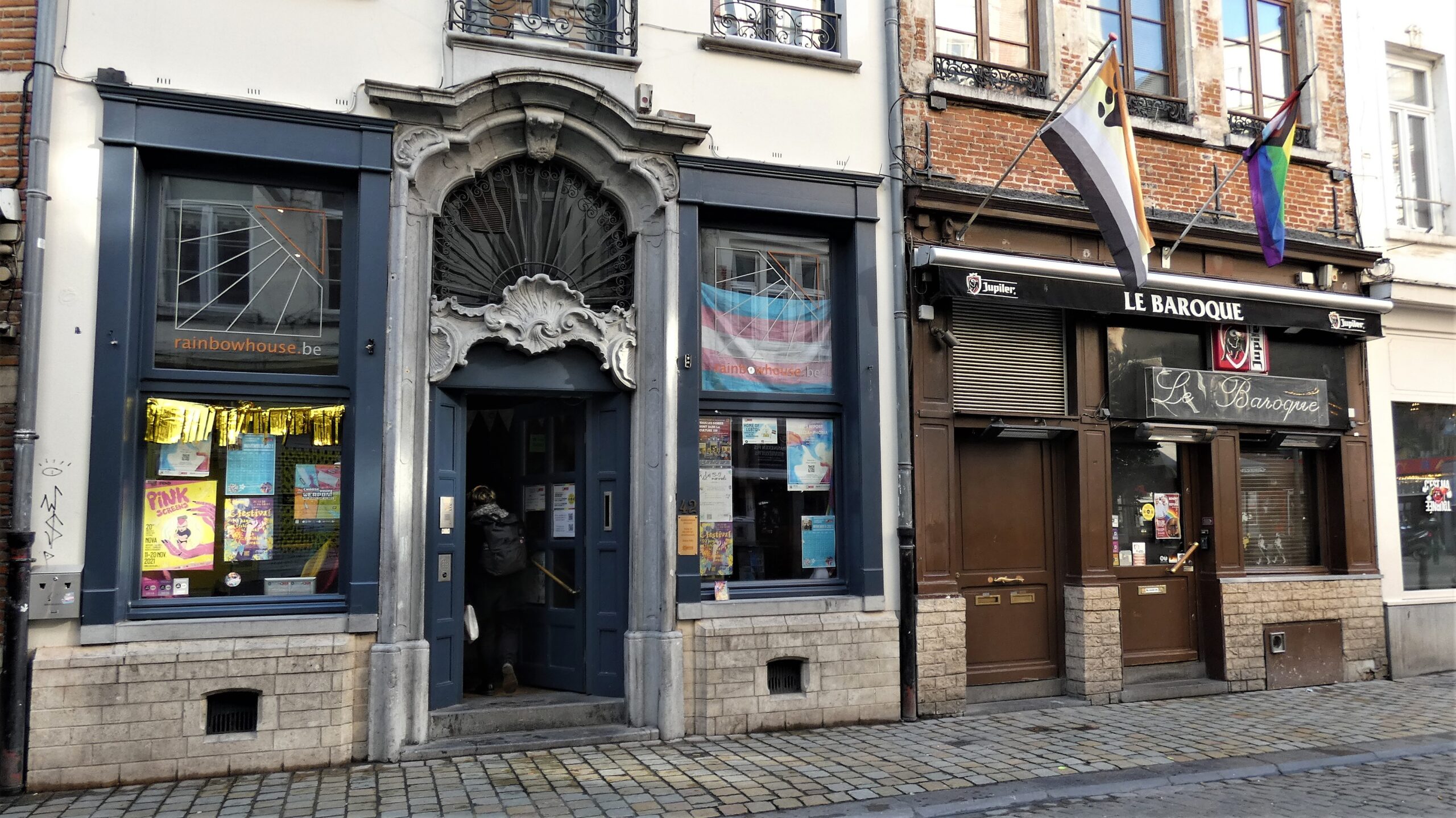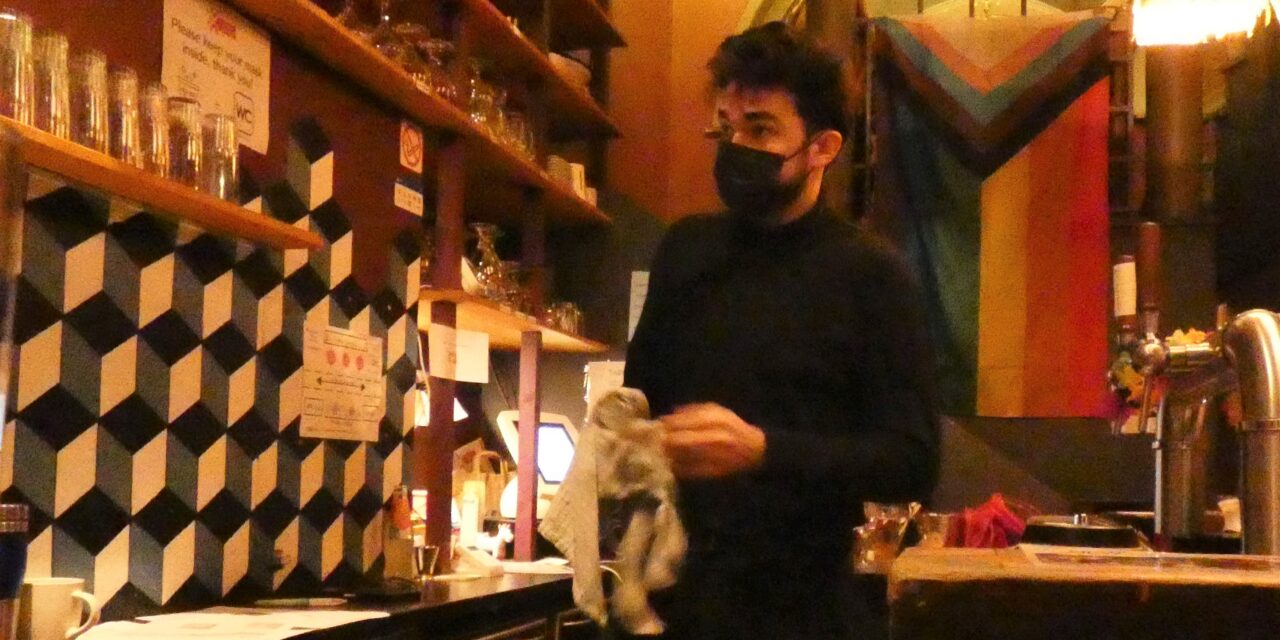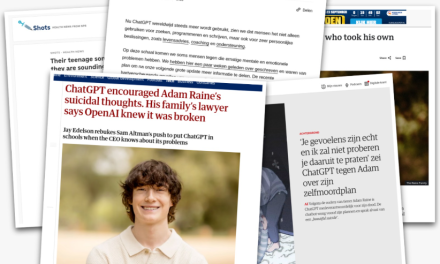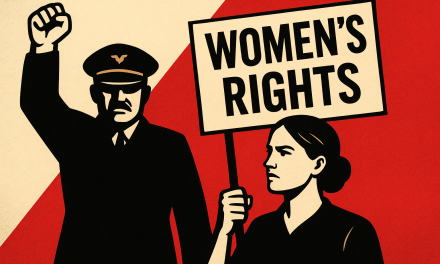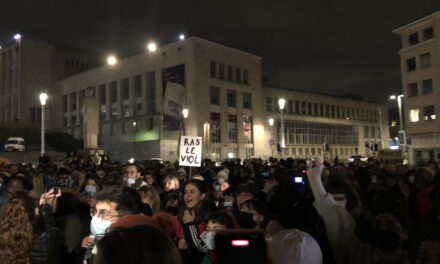The RainbowHouse-bar in Brussels is known as a safe haven for LGBTI people. It’s easy to strike up a conversation with the bartenders and enjoy a drink. But not every country in the EU is this accepting towards the LGBTI, or has LGBTI-bars. And even in countries like Belgium, there’s still a lot that could improve for the community.
It remains a difficult task to improve the situations of the LGBTI-community in the EU member states according to Maria Walsh, member of the European Parliament and Vice president of the LGBTI intergroup of the EU. “Of course the EU tries its best when it comes to LGBTI rights, but there’s still room for improvement. Policy making is a slow process, and society moves fast. I really wish we could speed up this process sometimes.”
According to Walsh, it’s not just laws that need to be changed. “Of course policy making is important: we need laws to back up the community and give them the same freedom as non LGBTI people. However, the mindset of people is what’s possibly even more important.”
Laws and mindset do not always go hand in hand
According to the ILGA-report of 2021, Belgium comes in second best (right after Malta) of all the EU countries. The ILGA-report mainly focusses on the rights the LGBTI have. Though the community seems to have more laws to protect and acknowledge them than most EU other countries, Belgium is still in the top three regarding experiencing physical or sexual attacks for being LGBTI, according to a survey of the Fundamental Rights Agency (FRA) from the European Union. In the same survey 67 percent of Belgian respondents said they often or always avoid holding hands in public with their same sex partner, in fear of being assaulted, threatened or harassed.
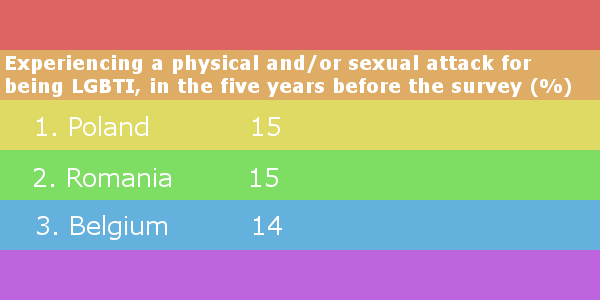
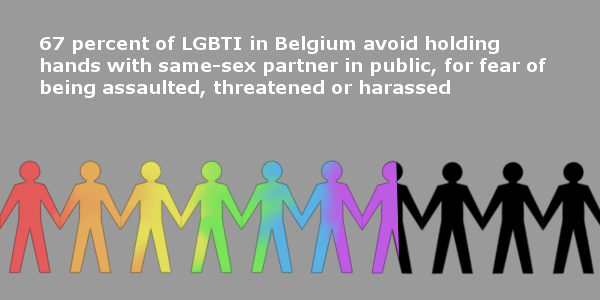
Source: FRA, EU-LGBTI II 2019
Problem child(ren) of the EU
Recently mainly Hungary and Poland have been in the spotlight regarding the violation of LGBTI-rights. “However, it’s not just Poland and Hungary that need to improve. Of course we’ve been hearing a lot about them in the media recently, with good reason, but that does not mean that the others are perfect. Not at all”, Walsh adds, “In Ireland for example conversion therapy is still legal and only in 1993 homosexuality was decriminalised.” The EU is now holding back funds from Poland and Hungary in hopes they change their laws. Walsh is uncertain if that’s the best way to do it, “It only hits the people who are already having a hard time.” Maybe just as important, if not more important according to Walsh is to focus on educating people; talking to people. “I’m also hopeful for the opposition in Hungary. Possibly they can make a change”, Walsh adds.
Ákos Volford is bartender at the RainbowHouse bar in Brussels (an LGBTI-bar). He’s originally from Hungary. He shares his experiences as a gay man in Belgium, which are rather different from his home country.
https://soundcloud.com/jasmijn-berkers/akos-story/s-jXKIysIxTw1?si=794d003d29674a829aeedc312cc8506e
A coloured future
“Society moves and changes fast”, Walsh says, “Where Hungary and Poland are at right now, countries like Belgium and Ireland were twenty years ago.” Another example Walsh mentions is the anti-discrimination law that should protect people from discrimination on the grounds of age, disability, religion and sexual orientation in all areas of EU competence. “It’s been blocked since 2008”, Walsh says, “It shows that the whole EU still has a lot to work on, but I’m hopeful we can get there.”
Enlarge
